Iranian reformists claim early victory
by Golnar Motevalli and Ladane Nasseri ,
2016-02-29 08:21:24.0
TEHRAN — Allies of Iranian President Hassan Rouhani have made significant gains as preliminary results from last week’s twin election were announced, with reformist and moderate candidates capturing all 30 parliamentary seats in Tehran.
The early victories and reports of a high turnout spurred claims of victory on social media by activists and media who share Mr Rouhani’s ambition of overhauling the post-sanctions economy with the help of foreign investment and perhaps easing some social restrictions. Yet to secure control of the legislature and confront entrenched conservative power in other governing institutions such as the judiciary, the president will need similar wins nationwide.
The reformist Aftab newspaper heralded "the soft breeze of victory" in a headline on its front page. The leading Shargh daily announced a "decisive victory", while Etemad, which also backs progressives, saw a "shake-up in parliament".
In Tehran about 2.6-million votes had been counted out of an electorate of 8-million, state television reported. One notable victim of the February 26 ballot was Gholam-Ali Haddad-Adel, a former parliamentary speaker and spokesman for a major hard-line parliamentary faction.
Participation in the parliament vote was more than 60%, according to authorities.
"Turnout was much higher than most anticipated," signalling broad participation, including among younger voters more likely to support the president, said Mehran Kamrava, director of the Center for International and Regional Studies at Georgetown University’s School of Foreign Service in Qatar.
Mr Rouhani was likely to "feel emboldened to continue with his priorities", he said.
The coalition of moderates and reformists that had formed in the build-up to balloting also took an early lead in a separate vote for the Assembly of Experts, a top clerical body tasked with selecting the Islamic Republic’s supreme leader when the position becomes vacant.
It is held at present by 76-year-old Ayatollah Ali Khamenei, who backed Mr Rouhani’s nuclear diplomacy but regularly expresses deep scepticism over US intentions towards Iran. Sixteen seats in the 88-member body are reserved for the capital.
Mr Rouhani and a leading ally, former president Ali Akbar Hashemi Rafsanjani, retained their seats in the assembly.
The results reflected a "vote of confidence by the most politicised segment of the Iranian society for Mr Rouhani and Mr Rafsanjani’s vision of a more pluralistic polity that is integrated into the global economy", said Ali Vaez, senior Iran analyst at the New York-based International Crisis Group. "Ultraconservatives are on the back foot, but not defeated."
Mr Rouhani, the architect of a diplomatic U-turn that led to the nuclear accord and the removal of global sanctions, wants to translate his foreign policy coup into benefits for Iranians ahead of next year’s presidential race.
Bloomberg
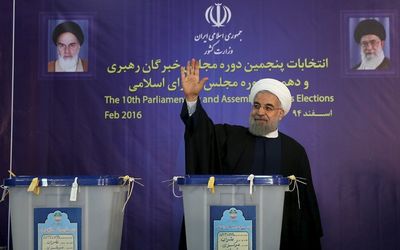
Iranian President Hassan Rouhani waves after casting his vote during elections for the parliament and Assembly of Experts, which has the power to appoint and dismiss the supreme leader, in Tehran. Picture: REUTERS
TEHRAN — Allies of Iranian President Hassan Rouhani have made significant gains as preliminary results from last week’s twin election were announced, with reformist and moderate candidates capturing all 30 parliamentary seats in Tehran.
The early victories and reports of a high turnout spurred claims of victory on social media by activists and media who share Mr Rouhani’s ambition of overhauling the post-sanctions economy with the help of foreign investment and perhaps easing some social restrictions. Yet to secure control of the legislature and confront entrenched conservative power in other governing institutions such as the judiciary, the president will need similar wins nationwide.
The reformist Aftab newspaper heralded "the soft breeze of victory" in a headline on its front page. The leading Shargh daily announced a "decisive victory", while Etemad, which also backs progressives, saw a "shake-up in parliament".
In Tehran about 2.6-million votes had been counted out of an electorate of 8-million, state television reported. One notable victim of the February 26 ballot was Gholam-Ali Haddad-Adel, a former parliamentary speaker and spokesman for a major hard-line parliamentary faction.
Participation in the parliament vote was more than 60%, according to authorities.
"Turnout was much higher than most anticipated," signalling broad participation, including among younger voters more likely to support the president, said Mehran Kamrava, director of the Center for International and Regional Studies at Georgetown University’s School of Foreign Service in Qatar.
Mr Rouhani was likely to "feel emboldened to continue with his priorities", he said.
The coalition of moderates and reformists that had formed in the build-up to balloting also took an early lead in a separate vote for the Assembly of Experts, a top clerical body tasked with selecting the Islamic Republic’s supreme leader when the position becomes vacant.
It is held at present by 76-year-old Ayatollah Ali Khamenei, who backed Mr Rouhani’s nuclear diplomacy but regularly expresses deep scepticism over US intentions towards Iran. Sixteen seats in the 88-member body are reserved for the capital.
Mr Rouhani and a leading ally, former president Ali Akbar Hashemi Rafsanjani, retained their seats in the assembly.
The results reflected a "vote of confidence by the most politicised segment of the Iranian society for Mr Rouhani and Mr Rafsanjani’s vision of a more pluralistic polity that is integrated into the global economy", said Ali Vaez, senior Iran analyst at the New York-based International Crisis Group. "Ultraconservatives are on the back foot, but not defeated."
Mr Rouhani, the architect of a diplomatic U-turn that led to the nuclear accord and the removal of global sanctions, wants to translate his foreign policy coup into benefits for Iranians ahead of next year’s presidential race.
Bloomberg


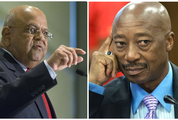
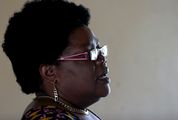




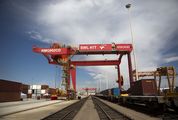
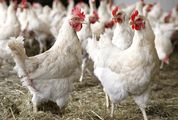

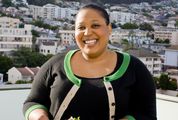
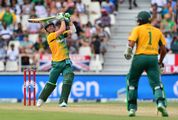








Change: 1.15%
Change: 1.23%
Change: 1.78%
Change: 0.75%
Change: 2.37%
Data supplied by Profile Data
Change: 0.27%
Change: -0.74%
Change: 1.15%
Change: 0.00%
Change: -0.81%
Data supplied by Profile Data
Change: -0.75%
Change: -0.74%
Change: -0.89%
Change: -1.14%
Change: -0.67%
Data supplied by Profile Data
Change: 0.15%
Change: 0.54%
Change: -0.20%
Change: 2.44%
Change: 1.83%
Data supplied by Profile Data